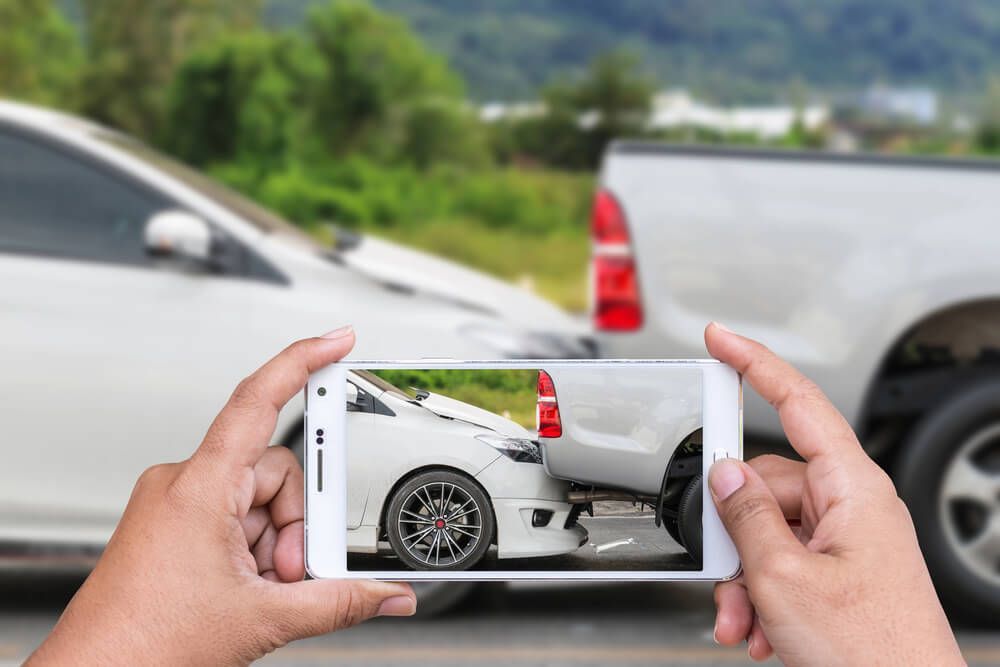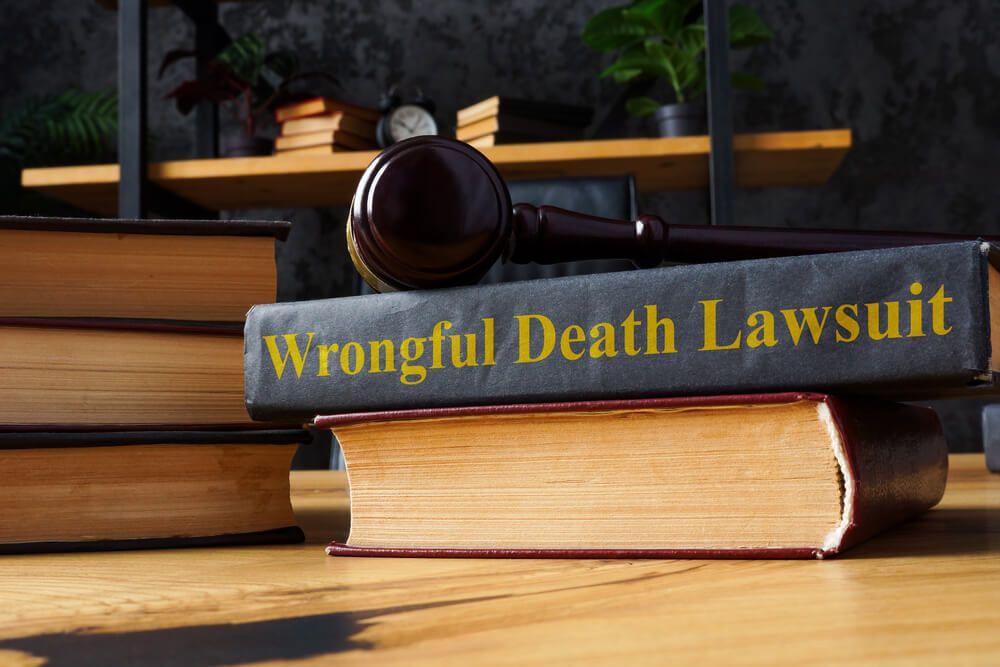What Happens After a Settlement Agreement Is Signed?
Recent Blog Posts
What Happens After a Settlement Agreement Is Signed?
Whether you are just starting a personal injury claim or approaching the finish line, it is perfectly normal to wonder if everything will go smoothly in the end. What happens after the settlement agreement is signed? While you will ideally receive your money and move on with your life, it is worthwhile to prepare for certain complications that may come up along the way.
Understanding What Is in Your Settlement Agreement
Before you actually sign the settlement agreement, it is important to know what you are agreeing to. This is a legally binding document that affects your financial recovery after an accident.
Remember that the insurance company also wants to benefit as much as possible from the agreement, so be sure to talk to your lawyer if you have any questions about what is included in the document.
Monetary Compensation
The settlement agreement should clearly state the amount of compensation provided by the insurance company. There should be a detailed breakdown of the damages covered by the settlement. It is important to include a summary of the dispute, all relevant facts and an outline of the payment terms to ensure that neither side can accuse the other of taking advantage of vague terms in the settlement agreement.
Release of Liability
Practically every settlement agreement includes a release of liability. This is a clause that states that the defendant is no longer liable for the damages caused by the accident.
If you sign the settlement agreement, you are legally binding yourself to this release of liability. This means that you cannot pursue further compensation after receiving your settlement. That is why it is so important to make sure you are getting the full amount owed to you.
Confidentiality Clauses
While not every personal injury case calls for confidentiality, there are times when one or both sides want to keep the details away from public disclosure. This is more common if the case was particularly contentious or if one side acted in bad faith. A confidentiality clause makes it so that all parties who sign the agreement have a legal obligation to keep details about the case to themselves.
Enforceability Terms
When you sign a settlement agreement after a long series of negotiations, you want to make sure that the insurance company will actually pay what they owe. Making sure that the agreement includes terms for enforceability will give you peace of mind in knowing that the law is on your side if the insurance company breaches the contract.
Processing and Disbursing the Settlement
Even after signing your settlement agreement, it can still take several weeks to receive your payment. The insurance company must process the payment by following internal policies, addressing any outstanding liens and complying with legal processes.
When the insurer gets clearance to disburse your settlement payment, it will go to your attorney first. Your attorney will deposit the payment into an escrow or trust account, taking out their agreed-upon fee as well as other legal fees or debts. The rest goes directly to you.
You can always refer to your settlement agreement for information on how the payment will be disbursed. The contract should state whether your settlement will be disbursed as a lump sum or through structured payments. It should also state whether payments will come via check or wire transfer. If you are unsure of the details, never hesitate to ask your attorney for clarification.
Why Is My Settlement Payment Being Delayed?
Insurance companies are complex organizations with multiple departments involved in settlement decisions. If there is a delay in your payment, it may be because other departments are reviewing the decision, checking for accounting errors or conducting other processes according to internal policy.
External factors can also cause a delay in payment. If you received medical treatment for an accident that was not your fault, the hospital can place a lien on your settlement. This means that the insurer or your attorney will need to address the lien before disbursing the payment to you.
Further delays can occur if the bank puts a hold on the deposit. Many personal injury settlements have a value of tens of thousands of dollars or more. As a security measure, banks often put a hold on such large deposits for as many as seven business days.
Keep in mind that most personal injury attorneys operate on a contingency basis, meaning they only make money when you receive a settlement. Even though a delay can be frustrating, you can rest easy knowing that your attorney is doing everything in their power to keep the insurance company on track and expedite your payment.
How Can I Speed Up My Settlement?
Being as cooperative as possible throughout the claims process can make your attorney’s job easier and more expedient. This starts with completing paperwork promptly and staying in constant communication with your legal team. Make sure your attorney knows about any medical expenses related to your accident so they can handle any outstanding liens quickly.
Paying Taxes on Your Settlement
After you receive your settlement payment, it is very important to determine if you will owe any taxes to the IRS. In general, the IRS rules that all income from any source is taxable unless exempted by another section of the Internal Revenue Code. For the sake of this rule, lawsuit settlement payments count as taxable income.
However, IRC Section 104 states that “damages received on account of personal physical injuries and physical injuries” do not count as taxable income. This means that if you received a settlement for a personal injury lawsuit, you may not owe any taxes.
In some cases, some parts of a single settlement may be tax-free while others are taxable. Your attorney can help you understand how much you owe to the IRS so that you do not overpay or underpay when tax season comes around.
Seeking Additional Compensation
Unfortunately, it is usually not possible to reopen a settlement after signing an agreement with the insurance company. This is because most settlement agreements include a release of liability. This release states that the other party is no longer liable for the damages caused by the original accident, so you cannot take further legal action in relation to that accident or the harm it caused.
After signing a settlement agreement, some people may realize that they were eligible for more compensation than they thought. Sometimes, this realization does not come until many months down the line when additional medical expenses or vehicle repair costs start to come in.
Before signing the agreement, it is very important to make sure it accounts for all current and future losses caused by the other party’s negligence. Your lawyer will use various resources and negotiation tactics to get the best possible settlement for you. You can likely achieve a better settlement by entrusting the negotiations to your attorney and consulting with them before signing anything.
What if My Settlement Was Not Fair?
If you received an unfair settlement because the insurance company engaged in fraudulent or coercive behavior, then it may be possible to reopen the case even if you signed a release of liability.
There are also times when new evidence comes to light that was not available during previous investigations. If this happens, it may reveal that you did not receive a fair settlement after all. This new evidence can also be grounds for reopening the case.
To determine if your settlement was unfair, consider whether or not it fully covers your quantifiable damages. A typical car accident settlement, for example, can range in value from $5,000 to $75,000 or even more. If your settlement seems insufficient for the amount of damage you suffered, it is worth seeking a lawyer’s opinion on whether or not the settlement is fair.
Rejecting a Settlement Offer
There are times when it is better to reject the settlement offer instead of signing it. What happens next if you decide to do this?
Ideally, rejecting an unsatisfactory settlement will open the door for further negotiations. Until you sign an agreement with a release of liability, you and your legal team can continue negotiating or presenting new evidence until the insurer agrees to provide suitable compensation. Mediation or arbitration can sometimes facilitate a more favorable outcome if these negotiations reach a standstill.
However, rejecting a settlement offer can also bring the process to a standstill. The insurance company might be unwilling to budge from their initial offer, even if you have strong evidence on their side. This does not necessarily mean that you should accept the lowball settlement just to put the whole thing behind you. Instead, it might be necessary to take your case to court.
Pursuing a Settlement in Court
If you decide to pursue a better settlement through litigation, your legal team can help you prepare for a successful trial. This involves going through a thorough pre-trial process, even if you handled some of the crucial steps during previous negotiations.
The pre-trial process usually entails:
- Discovery: Gathering further information, documentation and depositions relating to the case
- Pre-trial motions: Optional filings, such as requests to exclude certain evidence
- Pre-trial hearings: Formal meetings with the judge that attempt to address specific issues or resolve the case before moving to the actual trial
Having an experienced trial attorney on your side is greatly beneficial during the litigation process. Presenting your case to a judge and jury requires different skills from out-of-court negotiations. You need an attorney who can provide convincing arguments and advocate for an appeal if the verdict does not go your way.
Is It Worth Taking Your Case to Court?
Going to court can be the best way to secure a favorable outcome if the insurance company refuses to offer a satisfactory settlement. However, it is important to consider the time and money involved. A formal trial can add many months to the overall claim process, and it entails extra filing fees and other court fees.
Most personal injury cases resolve through a settlement outside of court. This is because both sides benefit from avoiding a lengthy trial. Before committing to the path of litigation, consider taking the time to fully discuss your options with your legal team.
Getting a Lawyer for Your Personal Injury Settlement
Having a personal injury lawyer throughout the claims process can help you achieve a favorable settlement. The resources available to an experienced attorney can also alleviate a lot of the uncertainty after you sign your settlement agreement.
After a settlement agreement, your personal injury attorney can help you by:
- Explaining the terms and answering your questions
- Helping you assert your rights to receive timely payment
- Giving you the guidance to fulfill your obligations according to the agreement
- Maintaining communication with the insurance company
- Providing updates about the status of your settlement payment
Involving an attorney in your personal injury settlement as early as possible can improve the outcome. They can assist with filing any necessary paperwork, including claims for medical expenses and other damages. They will make an initial demand for compensation and respond to the insurance company’s counteroffers.
Your legal team can then represent you in all negotiations and handle every aspect of your case from start to finish while you focus on resting and recovering. An attorney can also judge when a third-party mediator can help bring out a more favorable outcome for you. If you decide to take your case to court, it is more beneficial to be represented by a trial attorney who was working on your case from the beginning.
Sargon Law Group Can Help With Your Settlement Agreement
Every personal injury case is different, which can make it difficult to know what happens after the settlement agreement is signed. At Sargon Law Group, our team of personal injury attorneys is available to walk you through the process and help you with what comes next.
We represent injured people throughout Arizona, Colorado, New Mexico and California. Contact us today to learn more about your settlement options during a free consultation.
Resources:
https://uscode.house.gov/view.xhtml?req=granuleid:USC-prelim-title26-section104&num=0&edition=prelim





